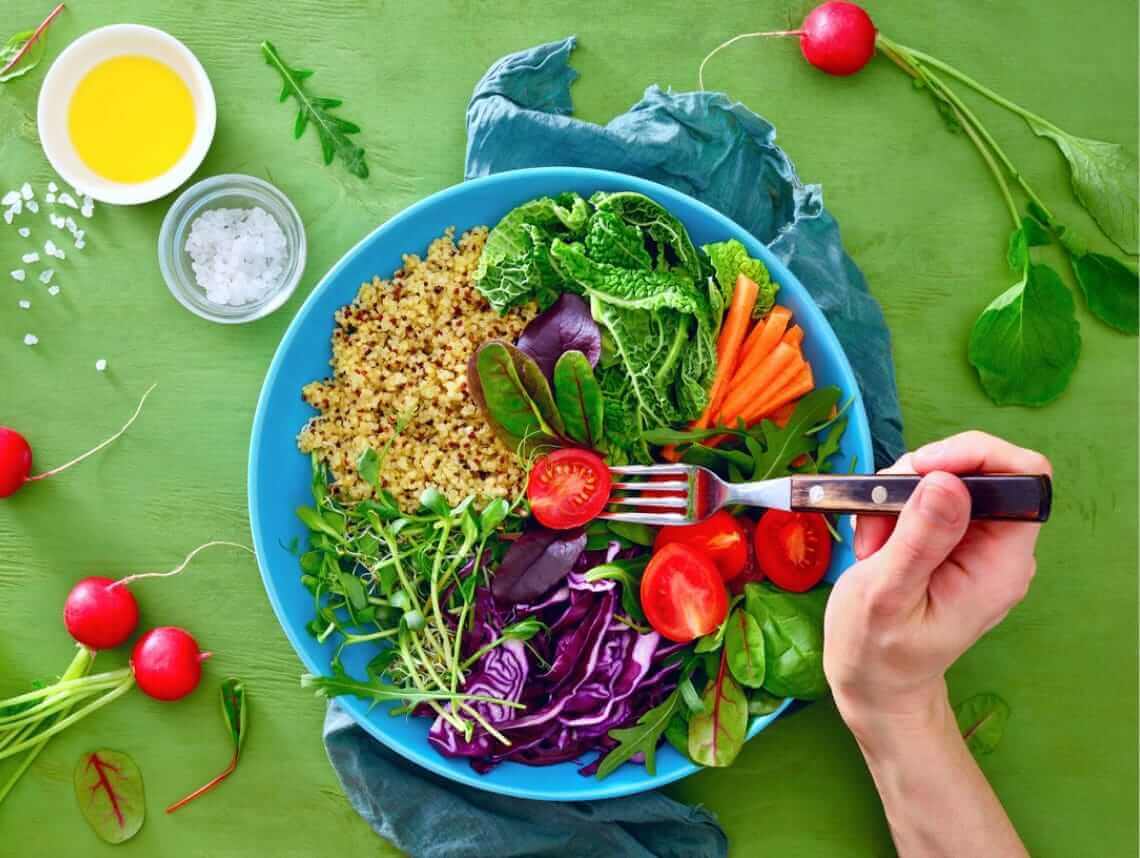
Living with Crohn’s Disease means constantly worrying about where the closest bathroom is. It’s wondering whether you’ll pay dearly for something you ate. It means gas pain. It also means wondering whether things you once enjoyed, like going out for a morning run, are a thing of the past.
Is there anything you can do to alleviate the symptoms? Would adhering to a particular diet allow for a normal life (as much as possible)?
How to Prevent Crohn’s Disease Flare-Ups
Having Crohn’s Disease comes with periods of normalcy and good digestion and periods of flare-ups. While there are things you cannot control (such as environmental changes) knowing which foods affect you negatively is the first step to preventing flare-ups.
1. Manage Stress
While life’s responsibilities can be stressful enough, Crohn’s adds complications into the mix. Will you have to cancel plans with friends or skip an important meeting? And by the way, constantly worrying about your bowel movements will actually worsen the symptoms. If you’re going to an event, scope it out beforehand, if possible, to familiarize yourself with the location of restrooms, how many stalls there are, whether there’s any semblance of privacy. Also, be aware that people with Crohn’s Disease and Colitis can carry a restroom request card that notifies business owners of an urgent, medical need for a restroom.
If you’re going to a restaurant, familiarize yourself with their menu and look for meals that will sit well on your stomach. If there are none, call ahead and ask whether they make concessions for dietary needs. Other ways to manage stress include exercise, biofeedback, and regular relaxation and breathing exercises.
2. Keep a Food Journal
While it may sound burdensome to add something else to your “To-Do” list, it’ll help you to keep track of foods that cause problems. And since what you eat is one of the things that you have control over, you can plan meals accordingly. Below is an overview of foods to eat and foods to avoid to best manage Crohn’s Disease.
Foods to Include in Your Diet
Whole foods are best. Yet since fiber can act as a laxative, when consuming fruits, peel off the skin.
When eating vegetables, cook them first. When choosing fruits, opt for those with a softer texture, such as bananas, watermelon, blueberries, and seedless grapes.
For heartier meals, rice, pasta, and potatoes work well (just remember to peel off the skin of the potatoes).
Other foods that are safe to eat include:
- Spinach
- Squash
- Pumpkin
- Peanut Butter
- Eggs
- Fish
- Tofu
- Oatmeal
- Yogurt
Since dairy is an inflammatory, substitute cow’s milk for coconut, almond, or soy milk.
As for herbs and spices, it’s safe to consume thyme, cumin, turmeric, oregano, lemon peel, mustard, ginger, and cinnamon.
Foods to Avoid in Your Diet
If you’re a lover of the Standard American Diet, now is the time to change. This is because many of the comfort foods that people grew up eating are actually inflammatory, which is precisely what causes IG tract flare-ups. This means avoiding:
- Processed foods
- Dairy
- Alcohol
- Caffeine
- Fried Foods
- Carbonated Beverages
- Spicy Foods
- Red Meat
- Nuts
- Fruit with skin
On the healthier end of the spectrum, you should also avoid anything that may produce gas, even if it’s a whole food, such as beans, lentils, chickpeas, and cabbage.
As for herbs and spices, avoid using black pepper, chili powder, cayenne pepper, and paprika.
What is a Low-Residue Diet?
“Residue” in the name “Low-Residue Diet” refers to what’s left in your bowels after your stomach has digested food. To put it another way: It is particles of food such as corn, seeds, nuts, and any type of fancy bread (whole grain, sprouted grain, seeded bread, multi-grain, spent grain) that are left in the intestines after you have a bowel movement.
The reason to avoid these foods is that they are more difficult to digest, and the residue can result in bloating gas, and cramping.
Dietary Supplements for Crohn’s Disease
Since a person with Crohn’s Disease has to be somewhat strict about what they eat, we advise taking a multivitamin. Not only will it make up for foods you are not eating, but it will also aid your body in absorbing nutrients that may have passed straight through your digestive system.
Other vitamins to consider are Vitamin D, Vitamin B-12, Calcium, Magnesium, and Folate. Always ask your medical provider what is best for you.
Have You Been Diagnosed with Crohn’s Disease? Contact Us for Assistance
If you or a loved one has been diagnosed with Crohn’s Disease, let us help you. At Care Options for Kids, we have an entire team of experienced caregivers to ensure the wellbeing of our patients.
If you or an aging loved one are considering home health care services, contact the caring staff at Care Options for Kids. Call today (888) 592-5855.
